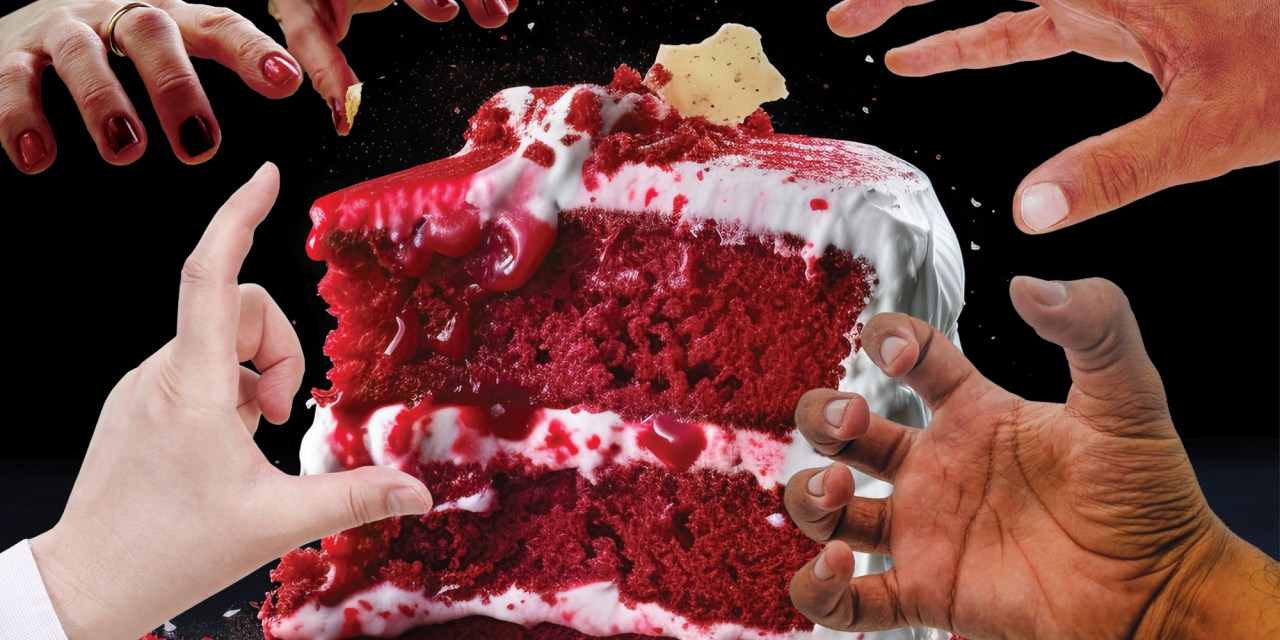Mntambo is the co-founder and executive director of We Are The People, which is a voluntary association formed to champion nation-building by mobilising citizens to participate in democratic governance and elections.
As we reflect on South Africa’s 30 years of democracy and where we are now, it is easy to list all that has gone wrong and the poor state of our nation. The conversation of what’s not working is a big part, and rightfully so, of our national narrative. Communities are frustrated and disillusioned.
I was recently asked about hope — is there hope for us, for our country? My answer was simple — there has to be hope, because we exist. We the people, who want this country to work, who love this country; we are far more than those who want it to fail, who continue to loot it — the amasela (thieves).
It is, however, difficult to lift people’s spirits from the depressing realities of poverty, hunger, the cost of living, crime and load shedding (this list is unfortunately not exhaustive), but we have to remind each other daily that there is hope because we the people exist.
The 2019 elections brought us the “new dawn” — a recommitment to building a better South Africa for all. Some clung to the hope brought on by Ramaphoria and the President’s promise that “together we will make history”, while most fell deeper into crisis — with interest rates increasing after Covid-19, the cost of living remains alarmingly high.
The “new dawn” government has not achieved any of its promises. Instead, unemployment has continued to increase, load shedding remains a major issue and businesses continue to disinvest. We have listened to State of the Nation Address (Sona) after Sona, yet still this administration has given us no action plan.
The upcoming general election is a big opportunity for us to decide who we the people, want to co-govern with. Coalition governments seem inevitable but it is important to shift the conversation away from the politicians and bring it towards the people, the voters. What are our priorities as voters? How can we use this election as a weapon of democracy?
We must remind and convince each other about the power of our vote. We the people are the ones who hire and fire our government. We must not only participate in the election but in the democratic structures that exist inbetween elections. We are not going to convince each other based on apartheid or its legacy. First-time voters were born after the advent of democracy. They have no lived experience of apartheid. We must appeal to our now. We must find hope and inspiration in our present.
Youth participation
One of the major factors that will swing the election in one direction or another is the youth vote. There are about five million registered voters between the ages of 18 and 29 — this equates to half of the votes the ANC got in the last election. It is also more votes than the official opposition received in 2019.
Elections are about numbers — how many people show up to the polls is incredibly important. Of course, if we reflect on our vote as an individual, we are unlikely to think it will make any difference. However, if we think about (and mobilise for) collective action, then we realise how much of an impact we can make. This begs the question of where and how we are mobilising as young people; when we say “meeting young people where they are”, what does it look like?
Of course, this speaks to the physical space which young people occupy, where they mobilise and organise. But it also speaks to their ideological space. The use of the internet and social media has altered how we organise — #RhodesMustFall, #HireAGraduate and other campaigns and social movements have shown the power of social media as a mobilising tool.
While it is easy (and largely accurate) to say young people are online, there is a digital divide across South Africa — particularly for young people who are poor and/or live in non-urban areas.
Young people are also curating space differently. Often through arts — again, this means that traditional civil society organising spaces are often limiting. The corporatisation of civil society programmes creates the problem here — it does not allow for unconventional forms of organising.
Different forms of art are used to express politics, to express governance issues and to locate young people in these discussions. Using these tools makes concepts that young people aren’t usually interested in (theoretically) more accessible.
How can we use existing platforms, or create new ones, that get these five million young people to the polls? How are we going to convince each other of the power of our participation on 29 May? As we build up to the elections, it is important that we all play an active role to ensure that no one is left behind on the day.
This can be as you go about your daily business, it can include speaking to people around you, sharing your thoughts on social media and just engaging with as many people as you can and sparking up conversations about why it is important to vote.
The state of our education system, transport and healthcare demonstrate this need. We the people are going to create change on 29 May and we will do it together.
In carrying out our mobilisation, we must be wary of the language we use and the information we disseminate. We must keep things simple and easy to understand. We must debate, engage with and encourage one another to ensure that we when reach the polling station, we know exactly who we will vote for and why. We are the people and we must decide our destiny. DM



 1 week ago
73
1 week ago
73

















